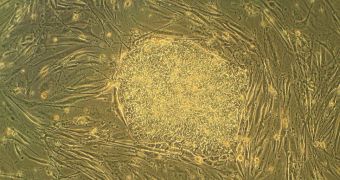A group of experts at the University of California in Los Angeles has been awarded a total of $10.4 million for investigating new stem cell-based therapies against deadly brain cancers, and corneal disorders, and for bone regeneration.
The experts are based at the UCLA Eli and Edythe Broad Center of Regenerative Medicine and Stem Cell Research, and their work has been recognized by the California Institute for Regenerative Medicine (CIRM), the state's stem cell agency.
CIRM awarded the Early Translational II grants on October 21. The recipients are professors of orthopedic surgery Dr. Bruno Peault and Dr. Chia Soo, professor of digestive diseases Dr. Noriyuki Kasahara, and assistant professor of ophthalmology Dr. Sophie Deng.
Peault and Soo received nearly $5.4 million, Kasahara was awarded about $3.38 million, and Deng got $1.65 million. CIRM believes that the investigators will put these funds to excellent use at the Center.
But the agency also has high expectations of the four researchers. It wants them to come up with either candidate drugs that can be submitted to US Food and Drug Administration (FDA) approval, or new cell therapies against the aforementioned conditions.
Peault and Soo will conduct investigations into using stem cell for regenerating bones. The team plans to use leftover fat stem cells from liposuction procedures to get the job done.
Any form of treatment they come up with could be of tremendous use for patients suffering from conditions such as spine fusion, bone fractures, herniated disks and maybe even osteoporosis. On the other hand, Kasahara will use the CIRM funds to investigate brain cancers, specifically highly-aggressive forms of the disease, known as glioblastomas.
The scientist wants to do this by training a replication-competent retrovirus in rapidly infecting cancer cells during the process of division.
As this happens, the tumorous cells are themselves turned into therapeutic, virus–producing cells, which go on to “convert” even more diseased cells.
Last, but not least, Dr. Sophie Deng will look into methods of promoting the regeneration of functional human corneal epithelial progenitor cells.
If she can achieve this objective, then treat the blinding corneal disorder known as limbal stem cell deficiency (LSCD) could become possible.
If left untreated, LSCD can lead to blindness or significant visual impairment. Corneal diseases in general are responsible for blinding more than 3.2 million people around the world annually.
Up until now, CIRM has funded the UCLA Broad Stem Cell Center with 39 research grants, totaling more than $133 million.

 14 DAY TRIAL //
14 DAY TRIAL //